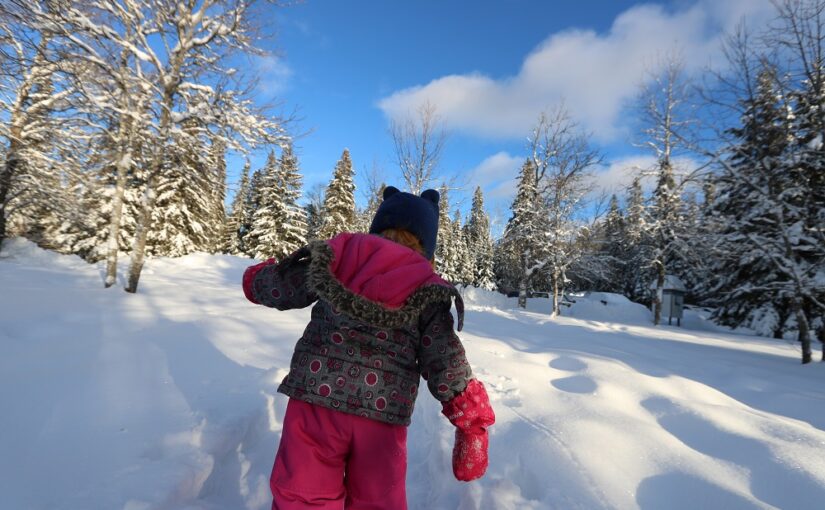The health benefits of hiking are head-to-toe. A walk in the woods can help alleviate mental fatigue, and improve creative thinking. Hiking is also great for cardiovascular health and muscle tone.
But is hiking an option in the winter?
Absolutely. We’ve collected a list of five parks with stellar options for winter rambles:
Darlington Provincial Park
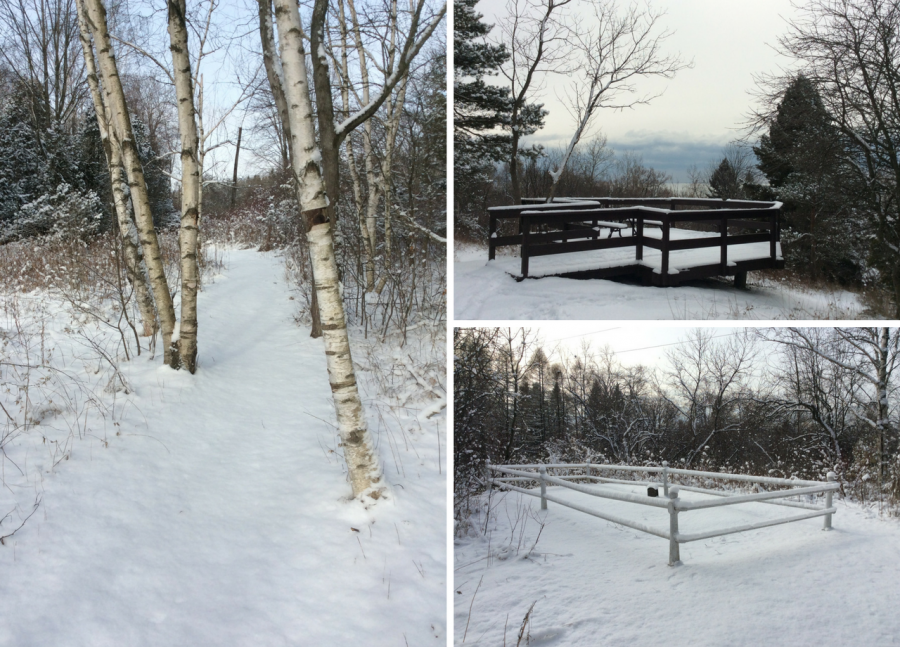
Burk Trail – 1.25 km, 30 minutes, moderate
This trail moves through fields, meadows and mature forest past a pioneer cemetery to a scenic lookout over Lake Ontario.
Located just off Highway 401, minutes from Oshawa, Darlington is a lovely GTA destination, and winter visitors should also check out McLaughlin Bay Trail and Robinson Creek Trail.
Frontenac Provincial Park

Doe Lake Loop – 3 km loop, 1 to 1.5 hour, easy to moderate
Hike along the shores of South Otter Lake and Doe Lake with a lookout over Doe Lake.
Explore Frontenac’s 5,355 hectares on the southern edge of the Canadian Shield, only 40 minutes north of Kingston.
Kakabeka Falls Provincial Park
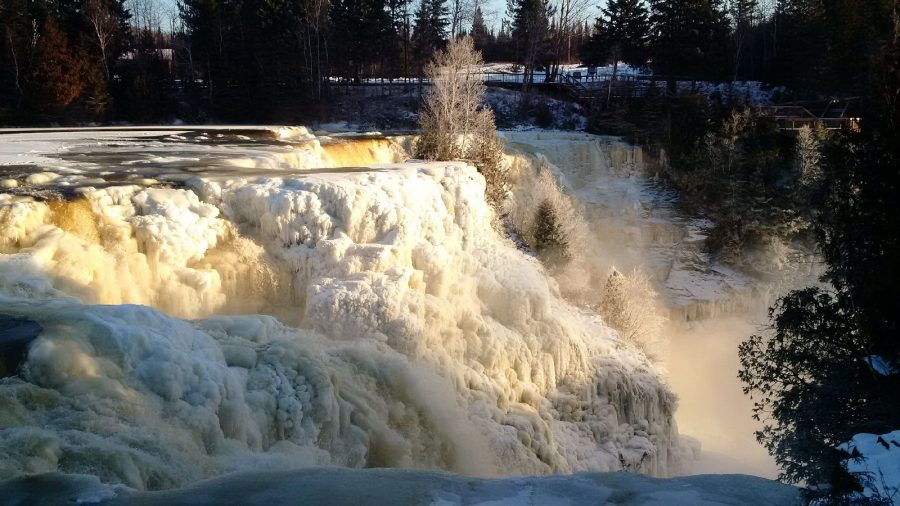
Boardwalk Trail – 750 m, linear, easy
This short winter stroll — only 30 minutes west of Thunder Bay — affords excellent views of the frozen gorge from the boardwalk (highway side only) that wraps around the top of the falls.
Got extra energy? Cross the bridge, strap on your snowshoes, and explore the Mountain Portage Trail (2 km, easy) or Little Falls Trail (4 km, intermediate).
MacGregor Point Provincial Park

Tower Trail – 3.5 km return
Mild winter temperatures and loss of snow cover have created some great winter hiking opportunities in MacGregor Point. The park’s boardwalks offer a great winter walk if you’re visiting Bruce County!
Algonquin Provincial Park
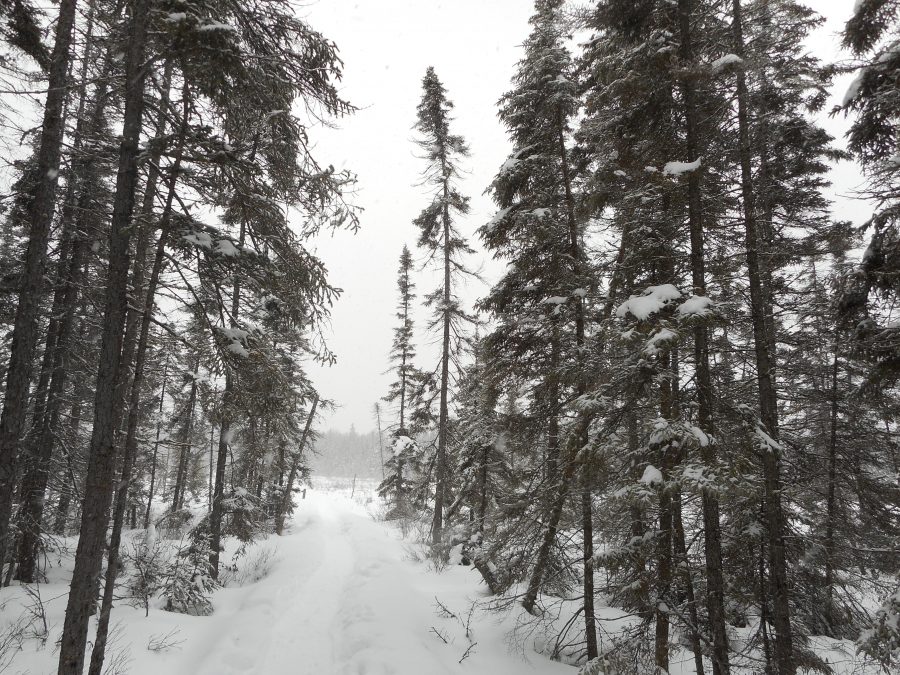
Spruce Bog Boardwalk (km 42.5, Highway 60) – 1.3 km, 1 hour, easy
Spruce Bog offers a very easy hike through a beautiful bog. Snow-clad spruces provide shelter for many birds and animals, which are regularly seen on this trail. Birds, such as black-capped chickadees and Canada jays, are often seen here.
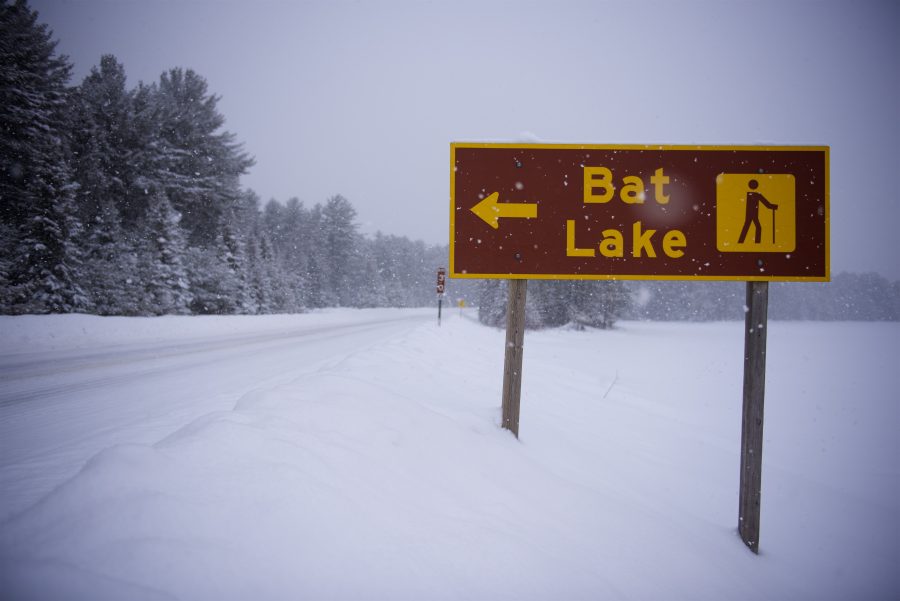
Bat Lake Trail (km 30 on Highway 60) 5.8 km – 3.5 hour, moderate to difficult
This trail goes through a variety of habitats, including pine, spruce and hemlock stands, hardwood forests, over small creeks and past a wetland. From the peak, enjoy a spectacular view of a frozen lake.
Mizzy Lake Trail (km 15, Highway 60) – 10.8 km, 6 hours, difficult
This rugged trail takes the hiker past a number of frozen ponds and lakes, through hardwood and spruce forests and over a number hills. There are many opportunities for excellent wildlife viewing on this trail. Be prepared for a long walk. No dogs allowed on this trail.
Winter hiking safety
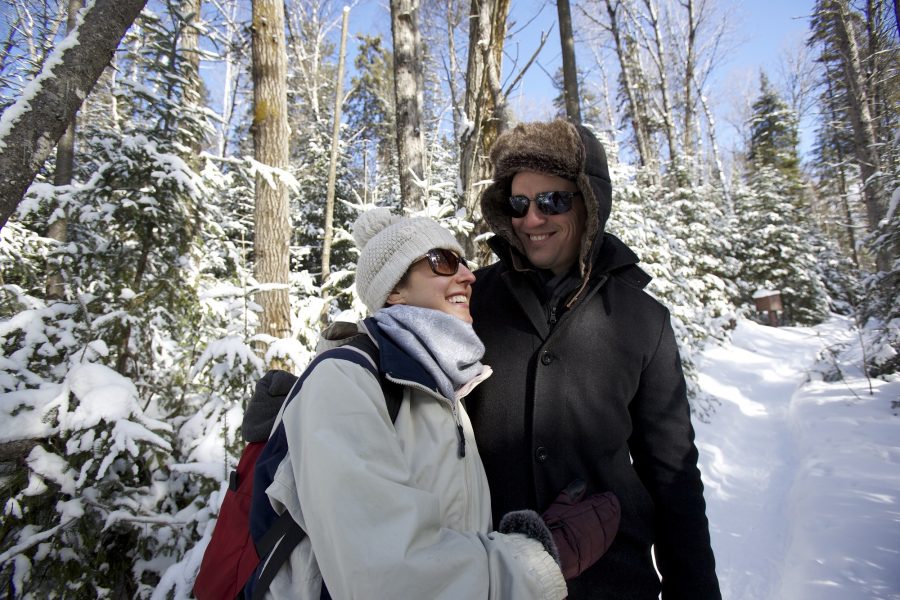
Always remember to give yourself enough time to complete the trail before dark. Check the starting time and length of the trail before you start – if you don’t think you have enough time, don’t start! Winter temperatures can be very cold, and even colder overnight.
Avoid frozen bodies of water and do not go onto the ice. Ice conditions can be unpredictable.
And — of course — dress for the weather.
